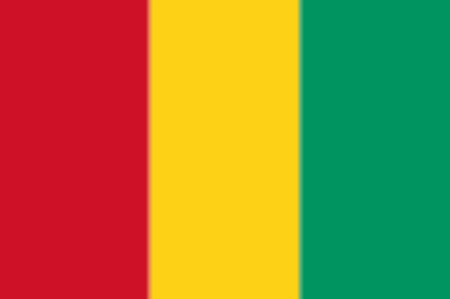
Republic of Guinea flag Source: Wikipedia
DAKAR, Senegal (AP) — Guinea’s opposition leader Cellou Dalein Diallo said on Tuesday that he doesn’t believe the country’s legislative election can be held next week, citing flaws in the voter roll which he says will take too much time to fix.
His critical assessment contrasts sharply with that of the United Nations special envoy to the region, who mediated a six-hour-long session Monday between the country’s warring opposition and ruling party, and who told reporters upon returning to Senegal that he remains confident the election will go ahead on Sept. 24.
“The date of the election is still Sept. 24,” Said Djinnit said at his residence in the Senegalese capital. “As of today we are a few steps away from the election. Nothing permits me to say otherwise.”
The U.N. has so far mediated 13 meetings between the two sides in an attempt to return the West African nation to constitutional rule. The country’s last parliamentary elections were held in 2002, and were first rescheduled in 2007. The repeated delays have spanned three presidents and have left the nation without a functioning legislature.
At the Monday meeting, the National Independent Electoral Commission agreed to many of the demands of the opposition, including agreeing to publish and post the voter list in precincts across the nation, a process which Djinnit said will be completed by Thursday. He said the election body also agreed to split polling stations that had 1,000 or more registered voters into two or more voting bureaus, in order to reduce the waiting time.
But Diallo, who came in second in Guinea’s presidential election three years ago, and who heads the largest opposition party, said it is not physically possible for the election commission to accomplish all the changes they had demanded in time for the vote to be held.
“No, it’s not possible. I don’t see how the CENI (the election commission) can take care of all the issues we have raised,” said Diallo in a telephone interview Tuesday with The Associated Press. “When we had our meeting on Monday, the international community finally recognized that there are serious problems. … I don’t think these mistakes can be corrected by the 24th. … the CENI doesn’t have the capacity to do so. They are weak. And they are not working in good faith,” he said.
Guinea, a nation rich in minerals, including the world’s largest repository of bauxite, has been ruled by strongmen since its independence from France in 1958. The country’s first democratic election in 2010 failed to bring stability, after the vote took on an ethnic dimension.
Since then, the country’s capital has been repeatedly immobilized by violent protests pitting the opposition, primarily made up of people from the Peul ethnic group, against the country’s mostly-Malinke security force, the same ethnicity as Guinea’s president.
“We hope that these ethnic considerations are put aside during the campaign, and during the electoral process – and beyond. We wish – we hope – that Guinea will orient itself toward reconciliation and unity,” said Djinnit. “Guinea must move forward.”